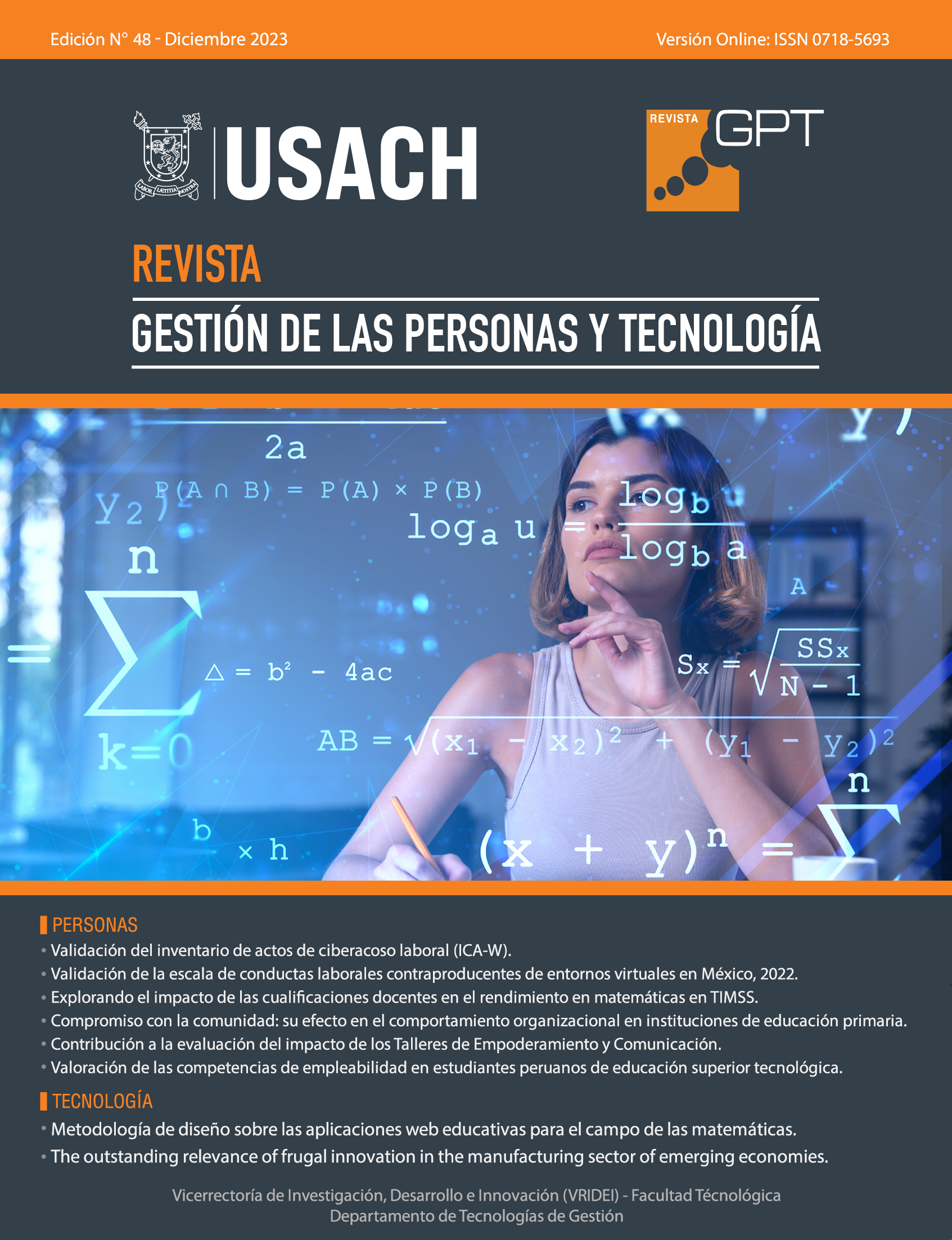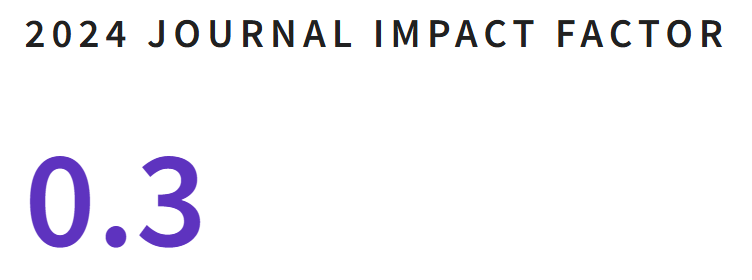Exploring the Impact of Teacher Qualifications on Mathematical Achievement in TIMSS: A Cross-Country Analysis
DOI:
https://doi.org/10.35588/gpt.v16i48.6500Keywords:
TIMSS, mathematics achievement, teacher qualifications, Cross-CountryAbstract
The international community has been focused on identifying the factors that influence academic achievement. This is due to the fact that a solid performance in mathematics can have a positive impact in the people life. However, identifying these factors has become a complicated work due to the large number of variables to consider. The researches across the world has consistently identified teacher qualifications as a significant factor. This study analyses the relation between the teacher qualifications and the student achievement. The information from 14 countries was analyzed, and the results indicate that the teacher qualification could be significant according to the country evaluated. Therefore, it is necessary to investigate more to identify why there are factors that are significant in some countries and not in others.
Downloads
References
Barasa, L. (2020). Teacher Quality and Mathematics Performance in Primary Schools in Kenya. African Journal of Research in Mathematics, Science and Technology Education, 24(1), 53-64. https://doi.org/10.1080/18117295.2020.1734164
Bau, N., y Das, J. (2020). Teacher value added in a low-income country. American Economic Journal: Economic Policy, 12(1), 62-96. https://doi.org/10.1257/pol.20170243
Bhai, M., y Horoi, I. (2019). Teacher characteristics and academic achievement. Applied Economics, 51(44), 4781-4799. https://doi.org/10.1080/00036846.2019.1597963
Ekmekci, A., & Serrano, D. M. (2022). The impact of teacher quality on student motivation, achievement, and persistence in science and mathematics. Education Sciences, 12(10), 649. https://doi.org/10.3390/educsci12100649
Fauth, B., Decristan, J., Decker, A. T., Büttner, G., Hardy, I., Klieme, E., y Kunter, M. (2019). The effects of teacher competence on student outcomes in elementary science education: The mediating role of teaching quality. Teaching and Teacher Education, 86. https://doi.org/10.1016/j.tate.2019.102882
Goldhaber, D., Theobald, R., y Fumia, D. (2022). The role of teachers and schools in explaining STEM outcome gaps. Social Science Research, 105. https://doi.org/10.1016/j.ssresearch.2022.102709
Han, S. W. (2018). School-based teacher hiring and achievement inequality: A comparative perspective. International journal of educational development, 61, 82-91. https://doi.org/10.1016/j.ijedudev.2017.12.004
Hill, H. C., Charalambous, C. Y., y Chin, M. J. (2019). Teacher characteristics and student learning in mathematics: A comprehensive assessment. Educational Policy, 33(7), 1103-1134. https://doi.org/10.1177/0895904818755468
Johansson, S., y Myrberg, E. (2019). Teacher specialization and student perceived instructional quality: what are the relationships to student reading achievement?. Educational Assessment, Evaluation and Accountability, 31(2), 177-200. https://doi.org/10.1007/s11092-019-09297-5
Kakazu, K., & Kobayashi, M. (2023). Student teachers’ development through a first-time teaching practicum and challenges: a qualitative case study approach. Journal of Education for Teaching, 49(3), 401-415. https://doi.org/10.1080/02607476.2022.2104629
Latifi, F., y Latifi, E. (2022). Did the Characteristics of Kosovar Teachers Influence the Results of Students in TIMSS 2019? Findings from the Performance of Kosovar Students in TIMSS 2019. Social Sciences, 11(8). https://doi.org/10.3390/socsci11080344
Lee, S. W., y Lee, E. A. (2020). Teacher qualification matters: The association between cumulative teacher qualification and students’ educational attainment. International Journal of Educational Development, 77. https://doi.org/10.1016/j.ijedudev.2020.102218
Lee, S. W., y Mamerow, G. (2019). Understanding the role cumulative exposure to highly qualified science teachers plays in students' educational pathways. Journal of Research in Science Teaching, 56(10), 1362-1383. https://doi.org/10.1002/tea.21558
Lee, J., Rhee, D. E., y Rudolf, R. (2019). Teacher gender, student gender, and primary school achievement: Evidence from ten Francophone African countries. The Journal of Development Studies, 55(4), 661-679. https://doi.org/10.1080/00220388.2018.1453604
Loyalka, P., Popova, A., Li, G., y Shi, Z. (2019). Does teacher training actually work? Evidence from a large-scale randomized evaluation of a national teacher training program. American Economic Journal: Applied Economics, 11(3), 128-54. Disponible en: https://doi.org/10.1257/app.20170226
Luschei, T. F., y Jeong, D. W. (2018). Is teacher sorting a global phenomenon? Cross-national evidence on the nature and correlates of teacher quality opportunity gaps. Educational Researcher, 47(9), 556-576. https://doi.org/10.3102/0013189X18794401
Marioni, L. D. S., Freguglia, R. D. S., y Menezes-Filho, N. A. (2020). The impacts of teacher working conditions and human capital on student achievement: evidence from brazilian longitudinal data. Applied Economics, 52(6), 568-582. https://doi.org/10.1080/00036846.2019.1650885
Mensah, E., y Baidoo-Anu, D. (2022). Towards quality and equitable education in South Africa: Unpacking the relationship between teacher factors, students’ socioeconomic background and mathematics achievements. Research in Mathematics, 9(1). https://doi.org/10.1080/27684830.2022.2088645
Myrberg, E., Johansson, S., y Rosén, M. (2019). The relation between teacher specialization and student reading achievement. Scandinavian Journal of Educational Research, 63(5), 744-758. https://doi.org/10.1080/00313831.2018.1434826
Nilsen, T., Scherer, R., y Blömeke, S. (2018). The relation of science teachers’ quality and instruction to student motivation and achievement in the 4th and 8th grade: A Nordic perspective. Northern Lights on TIMSS and PISA 2018, 61.
Olarte, D. A., Koch, P. A., Wolf, R. L., & Contento, I. R. (2022). Teachers’ Resources to Support School Lunch: Professional Development Is Warranted. Nutrients, 14(21), 4596. https://doi.org/10.3390/nu14214596
Swinton, J. R., y Clark, C. (2021). Do Teacher Credentials and Characteristics Affect Teacher Effectiveness in High School Economics?. The American Economist, 66(1), 90-109. https://doi.org/10.1177/0569434519874471
Thomas, M. A. (2022). Curricular conundrums: internationalising teaching and teacher education in Wisconsin. Teachers and Teaching, 1-16. https://doi.org/10.1080/13540602.2022.2098270
Toropova, A., Johansson, S., y Myrberg, E. (2019). The role of teacher characteristics for student achievement in mathematics and student perceptions of instructional quality. Education Inquiry, 10(4), 275-299. https://doi.org/10.1080/20004508.2019.1591844
van der Pers, M., y Helms-Lorenz, M. (2019). Regional school context and teacher characteristics explaining differences in effective teaching behaviour of beginning teachers in the Netherlands. School Effectiveness and School Improvement, 30(2), 231-254. https://doi.org/10.1080/09243453.2019.1592203
Welter, V. D. E., Emmerichs-Knapp, L., & Krell, M. (2023). Are We on the Way to Successfully Educating Future Citizens?—A Spotlight on Critical Thinking Skills and Beliefs about the Nature of Science among Pre-Service Biology Teachers in Germany. Behavioral Sciences, 13(3), 279. https://doi.org/10.3390/bs13030279
Wu, M. (2005). The role of plausible values in large-scale surveys. Studies in educational Evaluation, 31(2-3), 114-128. https://doi.org/10.1016/j.stueduc.2005.05.005
Downloads
Submitted
2023-12-01Published
Issue
Section
License
Copyright (c) 2024 People and Technology Management Journal

This work is licensed under a Creative Commons Attribution-NonCommercial-NoDerivatives 4.0 International License.










